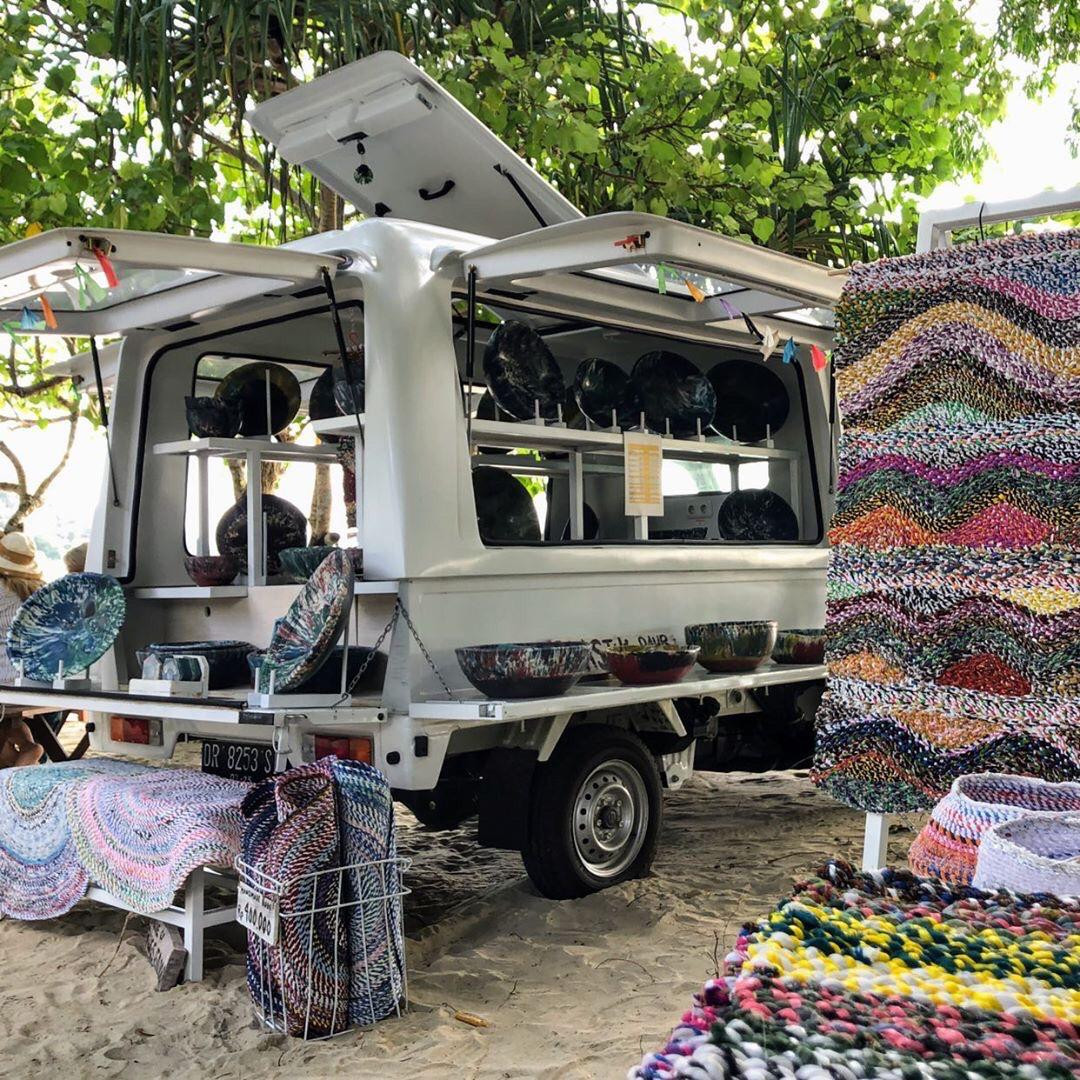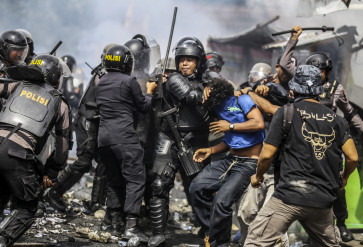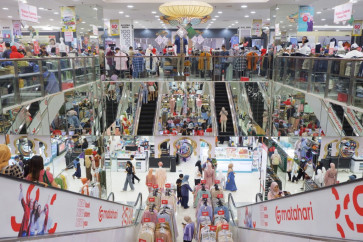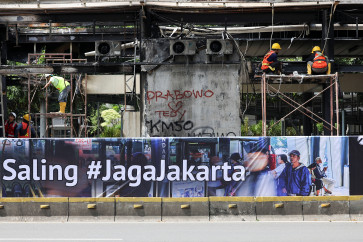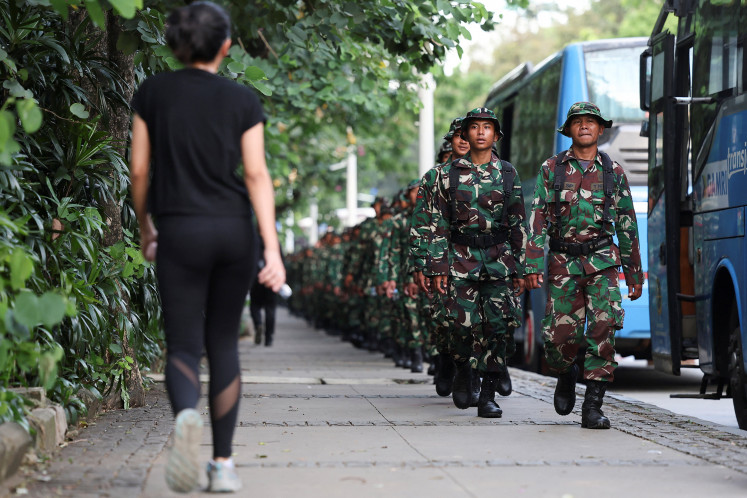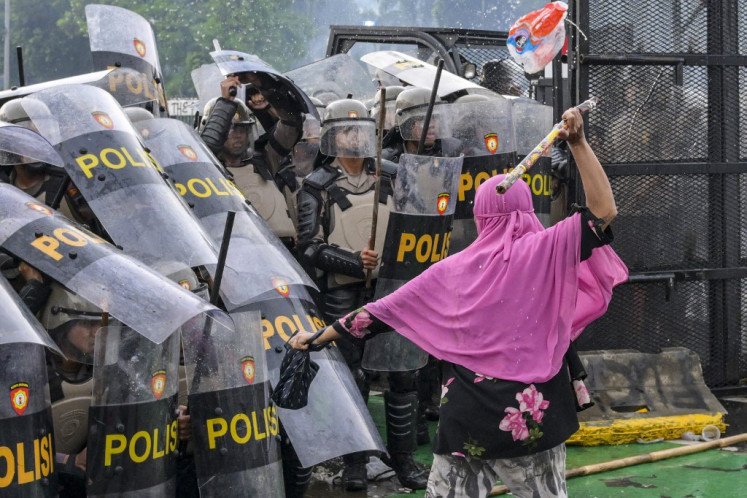Popular Reads
Top Results
Can't find what you're looking for?
View all search resultsPopular Reads
Top Results
Can't find what you're looking for?
View all search resultsPlastic pandemic
The longer the coronavirus outbreak lasts the more vulnerable will be Indonesia’s ambitious target to reduce marine plastic waste by 70 percent by 2025.
Change text size
Gift Premium Articles
to Anyone
A
n environmental disaster is lurking in Jakarta and perhaps around the world as we battle the raging COVID-19 pandemic. Our use of masks, gloves, head caps and other personal protective equipment to keep us safe us from virus transmission and our shift to online shopping – for goods or food – have increased the amount of plastic waste that needs to be managed well, or else a catastrophe will happen sooner if not later.
The pandemic certainly poses a serious challenge to the war on plastic pollution Jakarta and many other regions in the country have been waging. The longer the coronavirus outbreak lasts the more vulnerable will be Indonesia’s ambitious target to reduce marine plastic waste by 70 percent by 2025.
A joint study by the Indonesian Institute of Sciences (LIPI) and the Bogor Institute of Agriculture (IPB) found a 5 percent rise in the quantity of waste littering Jakarta Bay through the Marunda and Cilincing rivers from March to April last year, but with a mass declining by 23-28 percent. The research further identified seven types of waste and found plastic accounted for 45-57 percent of the garbage.
No further study has been conducted to update the state of the pollution, but for sure the problem of plastic waste remains unaddressed. Jakarta Environment Agency data reveal that the city produces 7,000 tons of waste per day, with plastic contributing 7 tons.
Although this looks small in percentage terms, for the agency the figure indicates that the single-use plastic ban has not been effective in reducing plastic waste. Introduced in July 2020, the policy prohibits single-use plastic bags in traditional markets, modern supermarkets and minimarkets. The ban, however, does not apply to online businesses, which are thriving during the pandemic.
The LIPI study discovered a significant rise in online shopping activities from one to five times a month to one to 10 times during the pandemic, when social restrictions applied. Understandably the use of plastic wrapping is on the rise.
Jakarta Environment Agency spokesman Yogi Ikhwan said the city administration was open to revision of the policy so as to require online businesses to use recycled plastic. In fact more businesses are already aware of the potential plastic pandemic.
Only if all stakeholders participate in the fight against plastic waste, can Jakarta and Indonesia be spared a plastic disaster. Households in this regard play a pivotal role as they are the largest producers of plastic waste. Perhaps a half of the problem would be solved if households stopped dumping plastic.
The LIPI study confirmed only half of Jakarta residents sort their waste for recycling. The public awareness about the need to minimize plastic waste is considered low despite years of the 3R – reduce, reuse and recycle – campaign. The Jakarta administration has organized waste banks at the community unit level to incentivize residents to join the campaign, but the movement has not been considered a priority despite the huge impact it could generate on the city’s livability.
For too long we have let millions of tons of plastic waste pollute our soil and oceans, and accepted it as a norm. This must change.

